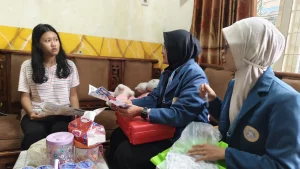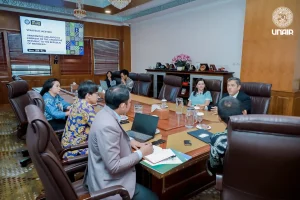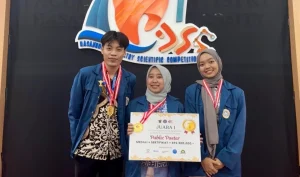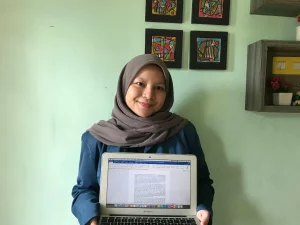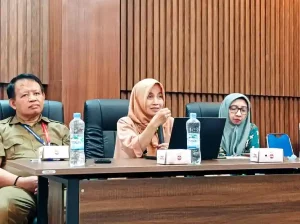UNAIR NEWS – Indonesia as an archipelagic country is surrounded by vast waters, almost 70%. It is known to have a great biodiversity because there are various types of animals, plants and coral reefs that grow in the territorial waters of Indonesia. This great natural wealth has inspired Student Creativity Program team in the field of Exacta Research (PKM-PE) from the Faculty of Science and Technology (FST) of Universitas Airlangga to conduct research on sponge.
Isolate named Sponge-6.1 is expected to become one of the drug candidates useful for the health of Indonesia. Sponge-6.1 isolates contain various types of active substances, such as flavonoids and other compounds are suspected to inhibit the growth of pathogenic bacteria such as Streptococcus pneumoniae.
According to Dina Lutfiana, leader of the PKMPE Team, the Sponge-6.1 isolate is believed to be a drug candidate to inhibit the growth of Streptococcus pneumonia, the bacteria causing pneumonia .
“We hypothesized that this isolate can inhibit Streptococcus pneumoniae, because during the Field Work Practice (PKL), I investigated that the Sponge-6.1 isolates can inhibit the growth of Streptococcus sp., Staphilococcus sp., and several other bacteria. It was from this point our team submitted a proposal and managed to qualify for funding from Kemenristekdikti, and the research could continue, “he said.
Besides Dina Lutfiana, this team also includes Jefpry Supryanto Sianturi, William Khodry, Denika Liyan Nor Wibowo, and Dwi Yulian Fahruddin.
They conducted research in collaboration with LIPI, and they conducted the research for two weeks at the Laboratory LIPI Bandung. The initial stage is done by isolating the sponge, which was coincidentally existing in the lab of LIPI. After isolating Sponge-6.1 , the study continued by testing the activity of the bacteria Streptococcus pneumoniae treated with isolates. The results showed that isolates can inhibit the growth of Streptococcus pneumoniae bacteria with administration at a certain concentration.
As the head of the PKM team, Dina hopes that the Sponge-6.1 isolate can be used as one of the future drug candidates to be able to produce health benefits.
“So far, our research has reached the stage of testing the content of secondary metabolites of isolates Sponge-6.1,” said Dina. If the content of secondary metabolites existing in these isolates can be identified, it is possible to synthesize a compound similar to drugs used for pneumonia and the balance of aquatic ecosystems can be preserved. (*)
Editor: Bambang Bes


